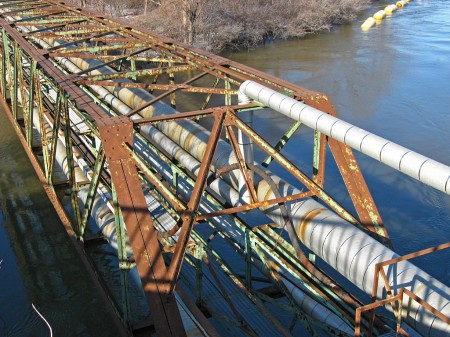Anyone who spends time thinking about public policy might benefit from reading Frédéric Bastiat‘s final essay: “What Is Seen and What Is Not Seen,” published in 1850. Many of the sections – such as those concerning people employed by the armed forces, and those on state subsidies for the arts – are surely as valid now as 150 years ago.
Bastiat also provides a concise rebuttal of the kind of ‘job creation’ argument frequently employed by governments:
Let us get to the bottom of things. Money creates an illusion for us. To ask for co-operation, in the form of money, from all the citizens in a common enterprise is, in reality, to ask of them actual physical co-operation, for each one of them procures for himself by his labor the amount he is taxed. Now, if we were to gather together all the citizens and exact their services from them in order to have a piece of work performed that is useful to all, this would be understandable; their recompense would consist in the results of the work itself. But if, after being brought together, they were forced to build roads on which no one would travel, or palaces that no one would live in, all under the pretext of providing work for them, it would seem absurd, and they would certainly be justified in objecting: We will have none of that kind of work. We would rather work for ourselves.
That is, indeed, an excellent mental test of public worth. If we were all brought together to build a museum that will be widely admired and universally enjoyed, we will not feel cheated of our labour. If we were brought together to build some white elephant – an international airport for a tiny town, a bridge to nowhere, and anti-ballistic missile shield – we would feel duly resentful for not having employed our labour for better purposes.
The essay features a spirited defence of middlemen, which is well worth reading. The story told about rent seeking and protectionism is also admirably clear and engaging:
Mr. Protectionist was going to resign himself sadly just to being free like everyone else, when suddenly he had a brilliant idea.
He remembered that there is a great law factory in Paris. What is a law? he asked himself. It is a measure to which, when once promulgated, whether it is good or bad, everyone has to conform. For the execution of this law, a public police force is organized, and to make up the said public police force, men and money are taken from the nation.
If, then, I manage to get from that great Parisian factory a nice little law saying: “Belgian iron is prohibited,” I shall attain the following results: The government will replace the few servants that I wanted to send to the frontier with twenty thousand sons of my recalcitrant metalworkers, locksmiths, nailmakers, blacksmiths, artisans, mechanics, and plowmen. Then, to keep these twenty thousand customs officers in good spirits and health, there will be distributed to them twenty-five million francs taken from these same blacksmiths, nailmakers, artisans, and plowmen. Organized in this way, the protection will be better accomplished; it will cost me nothing; I shall not be exposed to the brutality of brokers; I shall sell the iron at my price; and I shall enjoy the sweet pleasure of seeing our great people shamefully hoaxed.
It is a point especially well made as the American electoral season continues to encourage less and less sensible statements from leading candidates, when it comes to trade.






